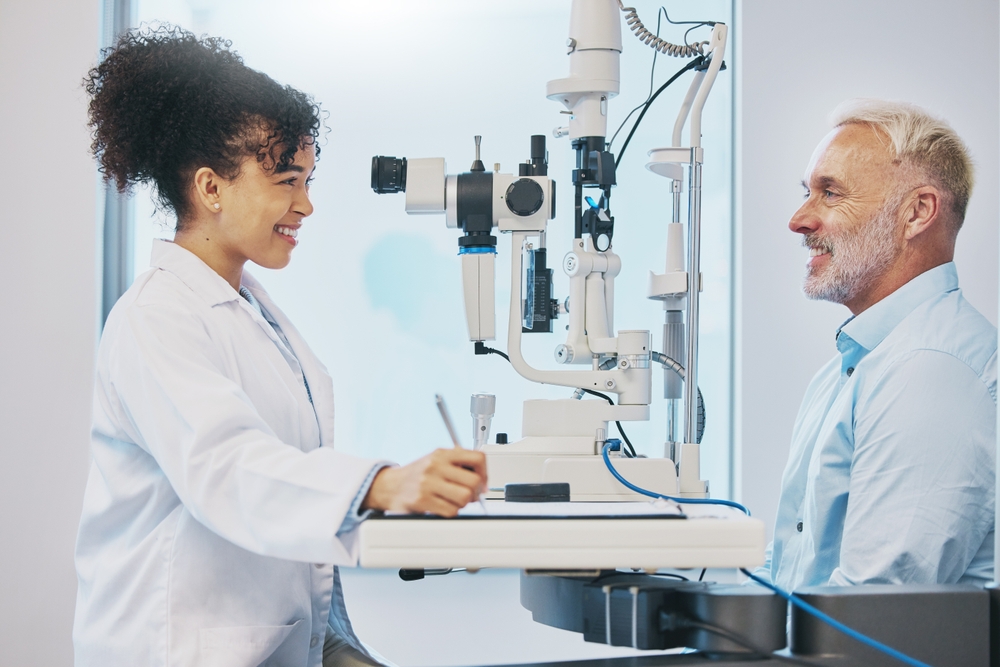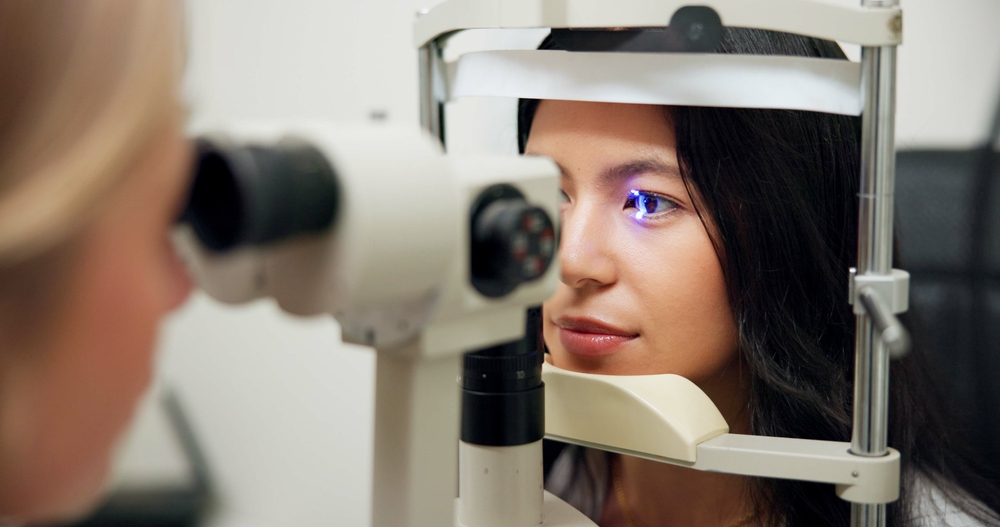Do I Need to See My Eye Doctor Every Year?
October 4, 2024
If you don't wear glasses and your eyes seem healthy, you may wonder whether you really need to see your eye doctor every year. While it may seem unnecessary, annual eye exams are essential for protecting the health of your eyes and guaranteeing that your vision is as clear as possible.
Keep reading to learn more about the importance of eye exams and why you should aim to see your eye doctor every year!
Who Needs to See Their Eye Doctor Every Year?
 Regular eye exams are crucial for maintaining good vision and overall eye health. While the frequency of visits can vary, certain groups should see an eye doctor annually:
Regular eye exams are crucial for maintaining good vision and overall eye health. While the frequency of visits can vary, certain groups should see an eye doctor annually:
- Adults over sixty, due to increased risk of age-related eye conditions
- People with diabetes, as they're prone to diabetic retinopathy
- Those with a family history of eye diseases like glaucoma or macular degeneration
- Contact lens wearers to ensure proper fit and eye health
- Individuals with existing eye conditions or previous eye surgeries
- People taking medications that can affect vision
- Those with high blood pressure or other systemic health issues
- Anyone experiencing vision changes, eye pain, or other concerning symptoms
Children should also have regular check-ups, especially if they have vision problems or a family history of eye issues. For most healthy adults under sixty without risk factors, an exam every two years may be sufficient.
However, it's best to consult with your eye doctor at Arlington Eye Center for personalized recommendations.
What Factors Increase the Importance of Yearly Exams?
While scheduling annual comprehensive eye exams is important for all adults, certain factors can make it even more vital to have your eyes checked at least once a year.
These factors include:
Age
The natural aging process of the eyes can result in serious changes to eye health and the quality of vision. In addition to causing common age-related eye conditions, the aging process can worsen refractive errors and cause presbyopia (age-related farsightedness).
Many people find their eye prescriptions change more frequently as they age. Annual exams ensure that eyeglasses and contact lenses offer the clearest possible vision.
Family History
A family history of certain eye diseases can put you at a higher risk of developing one in your lifetime. Annual exams can ensure that genetic eye diseases are caught and treated early.
A family history of cataracts, age-related macular degeneration, and glaucoma has been shown to increase the risk of developing these conditions. These three conditions are the leading causes of blindness in America, making early treatment essential for preventing vision loss.
Chronic Health Conditions
Chronic health conditions, particularly high blood pressure, and diabetes can cause complications that can affect overall eye health. When unmanaged, both high blood pressure and diabetes can increase intraocular pressure and damage structures within the eye.
Specific tests performed at annual comprehensive eye exams look for signs of damage caused by intraocular pressure. When caught early, ophthalmologists can offer treatments that prevent further damage and protect eyesight.
Contact Lens Use
People who wear contact lenses to correct their vision are required to have their eyes examined annually. An up-to-date eye prescription is usually necessary to order a fresh supply of contact lenses.
Annual exams for contact lens users ensure visual clarity, lens comfort and fit, and overall eye health. Scheduling a yearly exam helps to catch lens-related problems before they affect eye health, adjust eye prescriptions, and reinforce the guidelines for proper contact lens use and care.
Past Eye Health Issues
If you have a history of eye injuries or eye surgeries, annual exams can prevent a past issue from affecting future vision. In some cases, more frequent eye exams may even be recommended.
Even when successfully treated, past eye injuries or surgeries can impact eye health many years later. For example, minor corneal abrasions usually heal within a few days but can lead to corneal erosion as a person ages.
What Does an Eye Exam Involve?
When you come in for a comprehensive eye exam at Arlington Eye Center, our board-certified ophthalmologists perform various tests to evaluate the health of your eyes and the quality of your vision.
Visual Acuity Test
A visual acuity test, during which you read letters or numbers from an eye chart, is one of the first tests performed at an eye exam. Determining visual acuity, or how well you see with or without glasses, can help optimize the accuracy of your eye prescription.
Ocular Motility Test
This test assesses how well your eyes move together and detects ocular misalignment. It also checks the quality of your peripheral vision.
Slit Lamp Examination
A slit lamp is a special binocular microscope that enables our ophthalmologist to closely examine the eye's inner structures. This exam evaluates the cornea, lens, eyelids and lid margins, optic nerve, and retina.
A slit lamp examination requires pupil dilation. Special eye drops temporarily dilate the pupil, which will return to their normal size within a few hours following the exam.
Glaucoma Testing
Detecting consistently high eye pressure is often the first sign of glaucoma. Tonometry, also known as eye pressure testing, gives a direct and accurate eye pressure measurement.
A comprehensive eye exam at Arlington Eye Center takes approximately one to two hours. All the tests performed during this eye exam are minimally invasive and painless.
Annual eye exams are recommended for every adult over the age of eighteen. They require only a few hours of your time once a year and are the best way to ensure a lifetime of clear, healthy vision.
Is it time for you to schedule an annual eye exam? Schedule an appointment at Arlington Eye Center in Arlington, VA, today!



